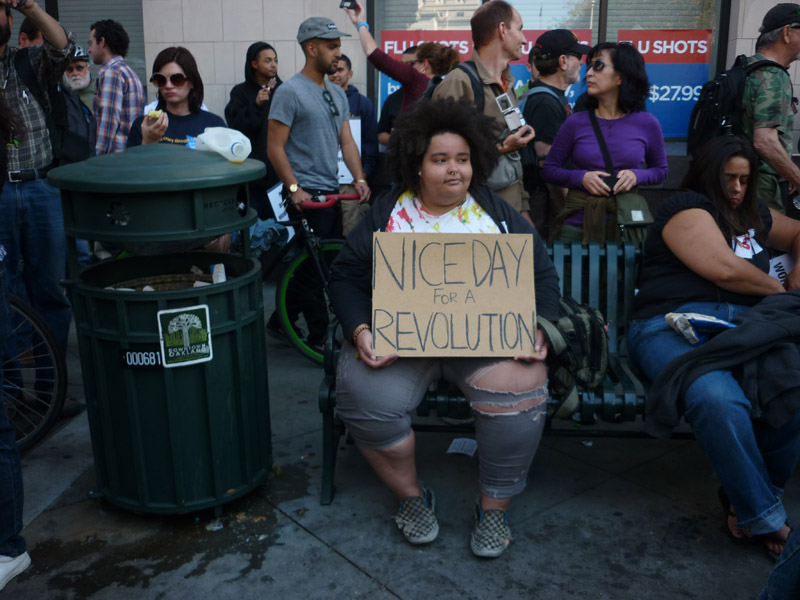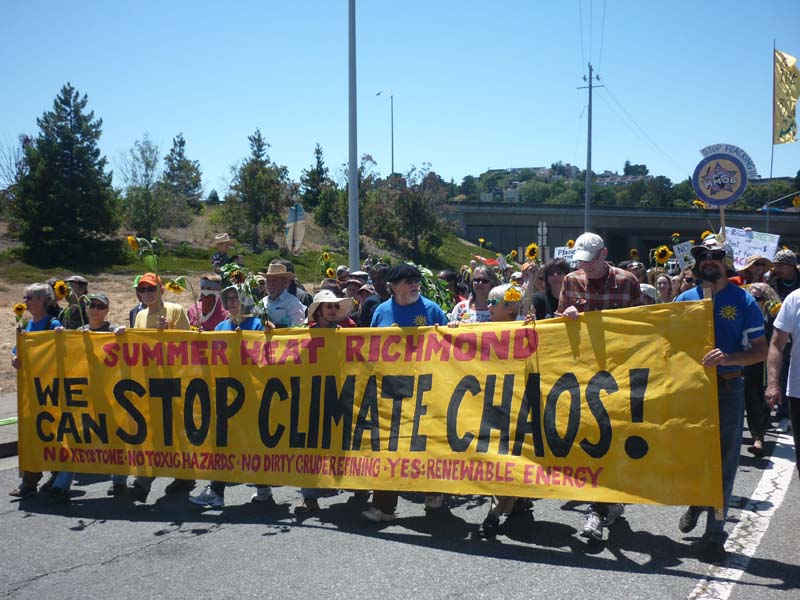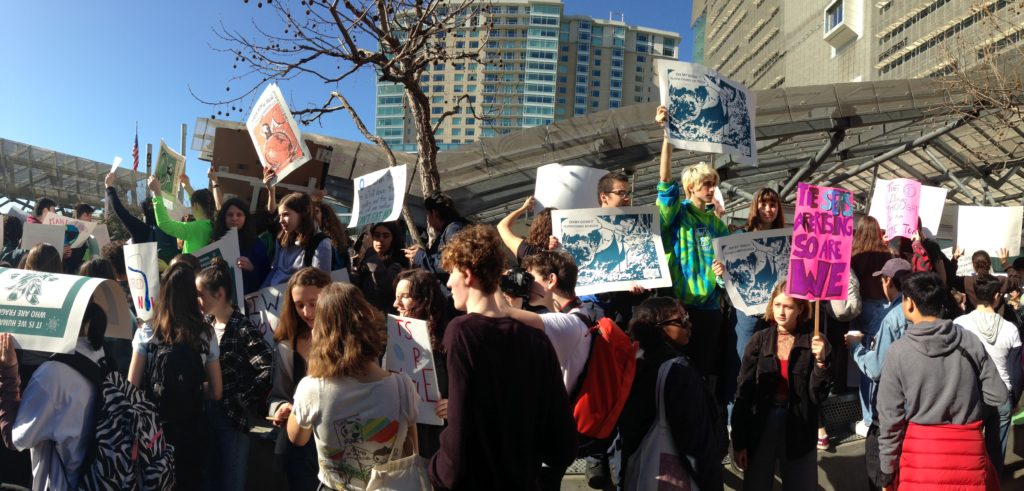I meant to write about the Michael Moore produced documentary Planet of the Humans right after watching it last weekend. But over the course of the week all of the wild distortions and misrepresentations in it got debunked quite expertly by dozens of people with much more knowledge on the current state of renewable energy than me, so I decided it wasn’t worth spending any more time on. My bottom line was that even though it makes a few good points, this film is so amateurish, dated, and in such bad faith that the highest award it could aspire to is to be forgotten. The End.
But then Bill McKibben, who gets caricatured in the film as the nefarious eco-profiteering mastermind in bed with evil polluting corporations, wrote a piece in Rolling Stone that gets to the core of why this is so much worse than what Josh Fox calls “an unsubstantiated, unscientific, poorly made piece of yellow journalism which attacks proven renewable energy and science.” (Side note: having followed Bill’s work, interviewed him, blogged with him, and been involved in various campaigns he and others have inspired since 10/10/10, the very notion that he has a parallel shadow life as a corporate shill is actually LOL hilarious in its outlandishness).
The key point is this:
Much has been made over the years about the way that progressives eat their own, about circular firing squads and the like. I think there’s truth to it: there’s a collection of showmen like Moore who enjoy attracting attention to themselves by endlessly picking fights. They’re generally not people who actually try to organize, to build power, to bring people together. That’s the real, and difficult, work — not purity tests or calling people out, but calling them in.
Bill McKibben
Thing is, there are examples of Michael Moore’s films in the past that have — if not directly, but at least by education and inspiration — brought people in to rally around a cause. You could say that his films exposing corporate greed and the inequities built into American capitalism — from Roger & Me to Capitalism, A Love Story — were part of the gradual awakening that resulted in the Occupy movement.

Bowling for Columbine brought to light the NRA and weapons manufacturers’ cynical exploitation of America’s deeply complicated and disturbing psychological and cultural relationship with guns, giving context and expression to the ever growing gun control movement.
Sicko pulled back the curtain on the country’s for-profit health industry, exposing its dystopian absurdity and making the case for Medicare for All long before it became a unifying progressive rallying cry. At the time, I wrote enthusiastically about how the latter inspired a former Signa executive — who has since become a committed advocate for universal health care — to affirm every claim in the movie about his industry.

What all these documentaries had in common was that even though Michael Moore was always in the lead role as the provocateur extraordinaire, he was a quirky and likable underdog you wanted to root for because he was fighting for something larger than himself. He was able to make the viewer feel that ultimately this is about all (or at least 99%) of us, and if enough of us speak out and come together to address a particular injustice, we can hold the small but powerful cadre of profiteers and oppressors accountable and change the system that allowed them to get into their positions of exploitation in the first place.
Planet of the Humans, on the other hand, has it all backwards. With the infinitely less charismatic Jeff Gibbs filling in as a sad sack protagonist to chase after cheap, cringe-inducing gotcha moments from its opening “Chevy Volt is coal powered, nyah nyah nyah nyah nyah!” scene that must have been recorded 10 years ago (several lifetimes in renewable energy development), the film loses any kind of relatability other than perhaps for fellow aggrieved old white dudes. (Incidentally, right wing media and the fossil fuel industry are psyched about a self-proclaimed veteran environmentalist saying fossil fuels are no worse than renewables). If you’re going to be using outdated footage to make a false indictment of the current state of affairs, at least give us a non navel-gazing messenger who we can laugh with.
However, it’s the other reversal that is much more grave, and, as Bill McKibben points out, damaging not just to the climate but all grassroots movements. How on god’s green earth did we get from hard-hitting investigations of powerful industries profiting off the little guy’s misery to punching down on an emerging industry and its supporters across all civic sectors who are doing the best they can to change the economic paradigm that has kept fossil fuel companies and their investors from paying the true cost of their product to people and planet? What’s next? Sicko Revisited, where Michael Moore goes to Cuba and craps on their public health system because it uses hospitals and people still die?

What McKibben is saying is that right now, when a broad, diverse, and rapidly growing coalition of climate and justice movements are finally coming together for a critical mass of support for a Green New Deal as well as a just and green recovery (perhaps the same?) and Michael Moore could be using his significant resources and influence to aim his fire at the remaining yet formidable corporate and political players sabotaging any chance we might have at an inhabitable planet, he is instead choosing to drive a wedge between the very people that need each other to win this uphill battle.
Instead of sparking a rigorous and much needed discussion about the details of the transformation we need — How much wood pellet burning is sustainable within our shrinking carbon budget? What levels of efficiency in solar panels do we need and can we get by when? Who gets to benefit and how from the new economy? — Moore is telling the activists of all different ages and backgrounds who’ve poured their blood, sweat and tears into getting us to the brink of major societal and political breakthroughs to stop bothering because they’re making things worse (which of course is a lie). Hey kids, focus on consuming less and having no children. Womp womp.

Really, Planet of the Humans is so damn frustrating because it not only attempts to take the wind out of the sails of the only energy sources that give us a fighting chance at living a modern-ish life without wrecking the planet for good (and yes, we need to consume less in all regards, everyone I know who advocates for wind and solar is also into conservation, big time!), but its underlying message is this extreme binary choice: if we can’t beam ourselves back to the stone age we may as well let the fossil fuel industry drive us off the cliff. Nothing in between. No room for process or progress. If you’re not a hundred percent right, you’re a hundred percent wrong. You get either a planet or the humans.
But really, with the whole film hinging on the easily disproved lie that wind and solar not only are currently as dirty as coal and oil but will irredeemably be stuck in that trajectory forever, it’s impossible to even find an entry point for discussion. So rather than go full Escher in trying to make sense of what motivated Michael Moore to put his name on this unnatural disaster of a movie, I’ll just leave it at where it first began for me: just forget about it.








Sven: My first impression in reading your post was, “Hmmm. I didn’t know about the movie.” My last impression, “Should I even bother looking for it?” In between, I found the quote from Bill McKibben to articulate the foundational crux of the problem in so many debates I’ve encountered over the last decade. It’s a scenario that’s gets worse with each new dilemma, and it cripples the ability of opposing views to ever come to some kind of understanding.
Then again, what if Mr. Moore is trying reverse psychology to stir things up? Just a thought.
Great writing as always, Sven. I cherish your communications.
Ruth
(https://www.thewritebeat.com/BacktoBasics/ecology-matters/)
Hi Ruth, thanks so much for checking in, good to hear from you!
As far as the movie, I don’t think it’s worth watching for any educational or even entertainment purposes. All you might learn from it is best gleaned from the many in-depth critiques written about it. The reason I watched it was because I knew this film would invariably come up in conversation — some of them perhaps contentious and sneaking up on me — in my various eco channels, so I thought if I’m ever forced to argue over it I should at least come from a place of having watched it.
Generally, I don’t have a problem with Michael Moore stirrings things up. In fact, it’s why I’ve so appreciated his work in the past, as I wrote in my review. The problem is that there are so many factual inaccuracies and distortions that there’s no real baseline from which to intellectually spar.
It’s just giving right wingers and conspiracists an extra cudgel to beat up on environmentalists and the broader climate movement. I don’t think it’ll splinter any of the amazing movements that have risen during the past few years, but the biggest damage this will do is that a lot of smart people will now have to waste their time again arguing with fools, just as climate denial was finally becoming a thing of the past.
Hard to tell what he was thinking supporting this production — I’m guessing it was the rush of having some real “documentary gold” aka embarrassing clips and not wanting to let go of them because of all the attention. But since there are no present facts to support the insinuations made in the 10 year old gotcha moments, they just built a fake narrative around them rather than just leaving them out. In other words: ego, fame, ratings, attention… incidentally all the stuff we (and MM) complain about with Trump. I’m not sure if MM was aware of this Faustian bargain he was making by releasing it, or if he simply is not well enough versed in eco science and movement to even have noticed. Shame on him either way.
I saw this today and thought of the “calling them in” work of the Art of the Green New Deal. Read it all or just skip to the second-to-last paragraph, which contains a quote from a 1970 Nobel lecture.
https://www.theatlantic.com/ideas/archive/2020/05/president-unraveling/611146/
We do live in the Twilight Zone with this deranged madman in the White House. I think we’ll definitely need imagination to rebuild after this nightmare is over. But also just a return to simple mundane things like honoring truth, facts, and basic human decency.